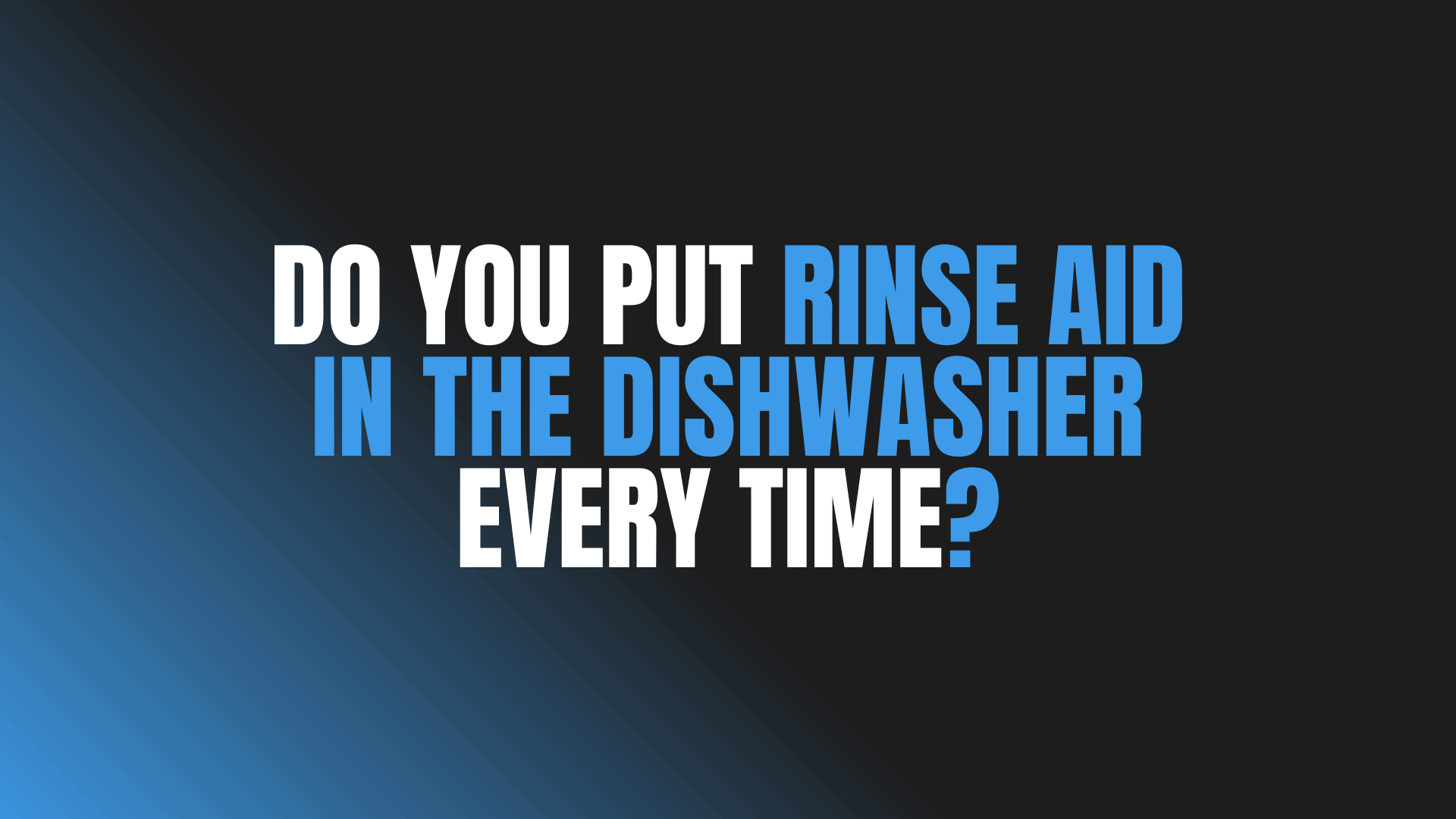
Question: Do You Put Rinse Aid in the Dishwasher Every Time?
Answer: Whether you put rinse aid in the dishwasher every time depends on several factors. While using it every time maximizes spot-free drying, many modern dishwashers and detergents perform adequately without it. You can adjust usage based on your needs and water hardness.
The Role of Rinse Aid in Your Dishwasher
Many people wonder about rinse aid. Do you need it for every wash cycle? This article explores the benefits and drawbacks of rinse aid, helping you decide if you should use it every time. We will cover the science behind how rinse aid works, its effect on your dishes and glassware, and consider different water conditions and dishwasher types. This information will help you make informed choices about using rinse aid, leading to sparkling clean dishes.
How Rinse Aid Works
Rinse aid reduces the surface tension of water. This action prevents water from beading up on your dishes. Instead of forming droplets, the water spreads into a thin, even sheet. This sheet then evaporates quickly, leaving your dishes spot-free and dry.
Without rinse aid, water droplets cling to the surface of dishes. These droplets contain small amounts of dissolved minerals. As the water evaporates, these minerals are left behind, creating spots. Rinse aid prevents these spots by ensuring even drying.
The chemical composition of rinse aid facilitates this process. Surfactants within the rinse aid lower the surface tension of the water. This promotes sheeting action, effectively combating spots and promoting faster drying.
Click here to read more about Blue Kitchen Refacing
Related Article: Can I Use Vinegar in My Dishwasher Instead of Rinse Aid?
Related Article: What Happens If You Don’t Add Rinse Aid to Your Dishwasher?
Drawbacks of Using Rinse Aid
While rinse aid offers several advantages, some potential drawbacks exist. Some people find that rinse aid can leave a slight film or residue on dishes. This is usually due to using too much rinse aid or a low-quality product. Adjusting the amount dispensed can resolve this problem.
Some rinse aids contain chemicals that some individuals prefer to avoid. However, many eco-friendly rinse aid options are available. These products use plant-based ingredients and avoid harsh chemicals.
Do You Put Rinse Aid in the Dishwasher Every Time?
The answer to the question, “Do You Put Rinse Aid in the Dishwasher Every Time?” depends on several factors. These include your water hardness, the type of dishwasher you own, and your personal preferences. In areas with hard water, using rinse aid every time is generally recommended.
Hard water contains a high concentration of minerals. These minerals contribute significantly to spotting. Rinse aid helps counteract this effect. If you have soft water, you might not need rinse aid for every cycle. Experiment to see what works best for you.
Your dishwasher also plays a role. Some dishwashers have built-in water softeners. If your dishwasher softens the water, you might be able to use less rinse aid. Consult your dishwasher’s manual for specific recommendations.
Ultimately, the decision rests with you. Consider your specific circumstances and adjust your rinse aid usage accordingly. Observe the results and modify as needed to achieve optimal dish cleanliness.
Alternatives to Rinse Aid
If you prefer not to use commercial rinse aid, some alternatives exist. White vinegar acts as a natural rinsing agent. Fill the rinse aid dispenser with white vinegar for a chemical-free option. However, vinegar can have a strong smell, especially in older dishwashers.
Citric acid is another natural alternative. It works similarly to vinegar, reducing water spots and promoting drying. You can purchase citric acid powder and mix it with water according to package instructions.
Conclusion
Rinse aid helps ensure cleaner, drier, and spot-free dishes. While not strictly necessary for every wash, its benefits are substantial, particularly in areas with hard water. Understanding the factors influencing its effectiveness allows for informed decisions about its usage. Experiment to find what works best for your dishwasher and water conditions. By understanding how rinse aid works and its potential advantages, you can make choices that lead to sparkling clean dishes every time.
Consider your water hardness, the type of dishwasher you own, and your personal preferences when deciding. Explore alternatives like white vinegar or citric acid if you seek natural options. Evaluate your results and adjust accordingly.

Blue Malue Get in touch with Blue here.
